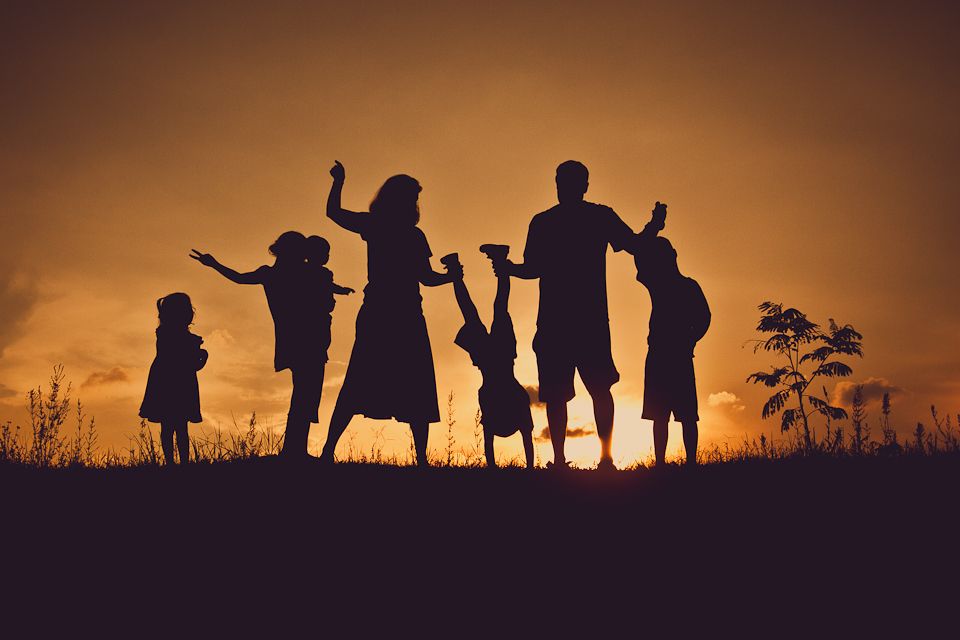
By Dr. Donna McCrea Godfrey, Ph.D.
I wish I could give you the magical answer on how to help your child that is grieving. Unfortunately, there is no prescription. There aren’t rules. There is no pixie dust in this story.
It’s a tricky subject. The bad news is, we can’t protect our kids from the inevitable.The good news is, we can help them during this transition.
Over time, we’ve learned that children’s responses to death are reflective of their age and the stage of their development. For instance, while younger children may not have an in-depth understanding of death, they do understand that something has changed. Whereas, older children are able to understand the finality of death and the impact death will have on their lives.
Despite numerous misconceptions, childhood grief is very real. In fact, research indicates that children not only grieve, but they grieve more deeply than adults. Trauma models highlight, for children, death as a distinct occurrence, which bounds them in time. Unlike adults, who grieve linearly, children grieve cyclically or in bursts. It is also common for them to revisit grief through each phase of their development. Over time, their thinking becomes more logical and concrete. Their understanding of death becomes more advanced. So, essentially, they are forced to revisit their loss and grief, over and over again. At times, it may even appear that the child is not grieving. That doesn’t mean that they are not.
Because children are perceived not to have the cognitive or emotional capacities to respond to death, they tend to be overlooked during times of grief. Their grief may be invisible to those around them. Yet, they are busy mediating their emotions internally.
Children frequently become silent victims, as they are “kept away” from conversations of death by well-intending adults, acting as gate-keepers. These attempts to shield them, often rob them of the ability to express their feelings, causing them to retreat and yield to silence. As a result, many children never have an opportunity to express themselves. Leaving them alone with their grief.
While all children don’t display immediate signs of grief, there may be red flags, signaling that they are in trouble and need help. You may notice changes in the child’s behaviors; verbal, physical, and emotional. Some signs include:
• Not talking about the deceased or their loss
• Expressing worries about safety, getting sick or dying
• Over-reacting to situation(s)
• Withdrawal from their environment
• Isolation
What can caregivers do?
Helping children navigate the wealth of emotions they face during times of grief can be complex. Children need strong layers of support, as they learn to live with their new reality. Research indicates, caregiver sensitivity acts as a “protective enhancer for their emotional development” (Caiozzo, Yule, & Grych, 2018. P.15). Further, when caregivers respond to the child in a supportive manner, this fosters “emotional awareness, acceptance, and understanding,” which ultimately aids in emotional regulation, the key to an individual’s ability to cope and manage stress, over time.For children, this directly impacts how they make meaning of the world. Thus, the child is being trained or coached, emotionally, on how to respond to critical and conflictual situations.
This also sets the foundation of what the child believes the world is. As they are developing, they are attempting to compensate for their place in this world. When you add grief into the equation, this can be extremely difficult for the child to reconcile. Hence, they need time to feel what they are feeling and time to make sense of what they are feeling. They don’t need to be pressured to “deal with it” or “get over it.” More than anything, they need to know that they have a safe space to share their feelings without repercussions. But, they also need to know that it’s okay to show emotions.
Encourage conversations with your child about how they’re feeling. Share how you’re feeling. Be as honest and straightforward as possible, without overwhelming them. This provides the child with a sense of normalcy and lets them know they are not alone in their grief. This is also your opportunity to model healthy coping skills for your child.
Parents and caregivers, talk it out! Talk to the professionals. Have open and frank discussions with doctors and therapists about how to facilitate the healing process. Don’t be afraid to engage your village. Talk to family members and friends that have been on this journey. Lastly, and most importantly, support and love them. Do your best to reassure them that they are loved. Sometimes, a simple hug is all they need. Just be present. Words aren’t always necessary and are often best left unsaid.
Happy healing.
Dr. Donna McCrea Godfrey
Consultant, Speaker/Facilitator & Educator Specializing in topics related to conflict/crisis management, victimization, and survivorship Ph.D. in Conflict Analysis and Resolution with a focus on Conflict and Crisis Management Master’s in Counseling with a specialization in Rehabilitation Counseling Phone: (954) 816-5304 Email: drdonnamccreagodfrey@gmail.com Instagram: drdonnamccreagodfrey Facebook: @DrDonnaMcCreaGodfrey
References
Caiozzo, C.N., Yule, K., & Grych, J. (2018).Caregiver behaviors associated with emotion regulation in high-risk preschoolers.Journal of Family Psychology, 32, 565–574.https ://doi.org/10.1037/fam00 00425 Rudenstine, S., Espinosa, A., McGee, A. B., & Routhier, E. (2019). Adverse childhood events, adult distress, and the role of emotion regulation. Traumatology, 25(2), 124.
Español: https://www.cscbroward.org/news/no-se-olviden-de-mi-como-lidiar-con-el-duelo-en-la-ninez
Krey'd:https://www.cscbroward.org/news/pa-bliye-mwen-jere-chagren-timoun
Português:https://www.cscbroward.org/news/nao-me-esqueca-encontrando-uma-solucao-para-o-luto-na-infancia
